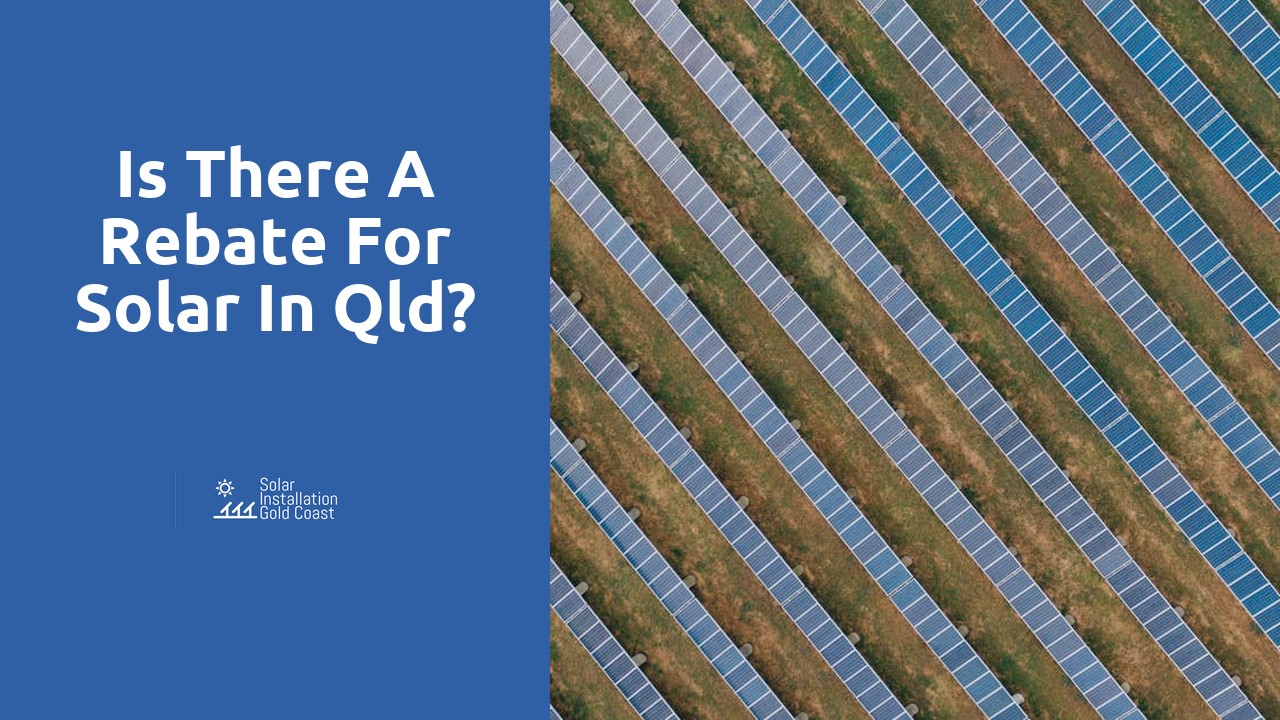Is there a rebate for solar in Qld?Eligibility Criteria for Solar Rebates in Queensland
To be eligible for solar rebates in Queensland, certain criteria must be met. Firstly, only property owners and tenants with the landlord's permission can apply for the rebate. Additionally, the solar panel system installed must have a maximum capacity of 100 kilowatts for commercial properties and 30 kilowatts for residential properties. Moreover, the solar panels must use approved solar modules and inverters to qualify for the rebate. An important requirement is that the solar panel system must also meet the necessary standards for safety and performance. Furthermore, applicants must ensure that the solar panel system is intended for the improvement of solar performance. This means that the solar panels must be used to generate electricity for the property on which they are installed. Individuals who wish to apply for the solar rebate mus
Table Of ContentsTo apply for solar rebates in Queensland, certai
ompanies, individuals can lower the overall cost of going solar, making it a more viable and financially attractive option for many consumers.
The availability of rebates and incentives for solar panel systems varies depending on factors such as location, system size, and type of installation. While the financial impact of rebates on solar installation expenses can be substantial, it is essential for consumers to stay informed about the current incentives available in Queensland. Understanding the eligibility criteria and application process for these rebates can help individuals make informed decisions when investing in solar energy, ultimately contributing to a more sustainable future for the state.
Environmental Impact of Solar EnergySolar Installation Gold Coast
Switching to solar energy can have a significant positive impact on the environment in Queensland. By harnessing the abundant sunlight in the region, solar panels generate clean and renewable energy, reducing the reliance on fossil fuels. This shift towards solar power plays a crucial role in decreasing greenhouse gas emissions and combating climate change. Solar Panel System Rebates and Incentives have motivated many households and businesses to adopt solar technology, thus contributing to a more sustainable future for Queensland.
Moreover, the adoption of solar energy helps in preserving natural resources and minimising air pollution. Traditional energy sources, such as coal and oil, lead to environmental degradation through mining and emissions of harmful pollutants. In contrast, solar power is a clean energy alternative that has minimal environmental impact throughout its lifecycle. With the continuous support of Solar Panel System Rebates and Incentives, the widespread adoption of solar energy in Queensland can further reduce the carbon footprint of the state, paving the way for a greener and healthier environment.
Contribution of Solar Power to Reducing Carbon Footprint
ion of solar power in residential, commercial, and industrial sectors across Queensland. With the support of rebates and incentives, solar energy installations are becoming more cost-effective, encouraging a shift towards cleaner energy sources. The positive trend towards embracing solar power not only benefits individuals in reducing their electricity bills but also collectively contributes to reducing the carbon footprint of the state.
Predictions for the Growth of Solar Technology in Queensland
As the demand for renewable energy sources continues to rise in Queensland, the future of solar technology appears promising. With increased awareness of the environmental benefits and cost savings associated with solar energy, more individuals and businesses are expected to invest in solar panel systems. The availability of Solar Panel System Rebates and Incentives is likely to further drive the growth of the solar industry in the region, making it a more attractive option for consumers looking to reduce both their carbon footprint and electricity expenses.
In the coming years, advancements in solar technology are anticipated to make solar panel systems more efficient and affordable. This evolution in technology, coupled with government initiatives promoting the uptake of renewable energy, is expected to boost the adoption of solar energy across Queensland. The state's abundant sunshine and the potential for solar power to meet a significant portion of its energy needs position Queensland as a key player in the expansion of solar technology. With ongoing support through initiatives like Solar Panel System Rebates and Incentives, the solar industry is poised for substantial growth, paving the way for a more sustainable and energy-efficient future for the state.
FAQS
Is there a rebate available for installing solar panels in Queensland?
Yes, there are rebates and financial incentives available for installing solar panels in Queensland to promote the use of renewable energy.
How can I benefit from the solar rebates in Queensland?
By taking advantage of the solar rebates in Queensland, you can significantly reduce the upfront costs of installing solar panels, making it more affordable for households and businesses to switch to solar energy.
Are there any specific eligibility criteria to qualify for solar rebates in Queensland?
Yes, there are specific eligibility criteria that need to be met to qualify for solar rebates in Queensland, such as the type and size of the solar system being installed, the property location, and the accreditation of the installer.
What is the process to apply for solar rebates in Queensland?
To apply for solar rebates in Queensland, you need to engage a Clean Energy Council accredited installer who can assist you in the application process and ensure that all necessary documentation is submitted to the relevant authorities.
Can I claim solar rebates retrospectively for a system I have already installed?Terms of Use
No, solar rebates in Queensland are typically available for new installations only and cannot be claimed retrospectively for systems that have already been installed.